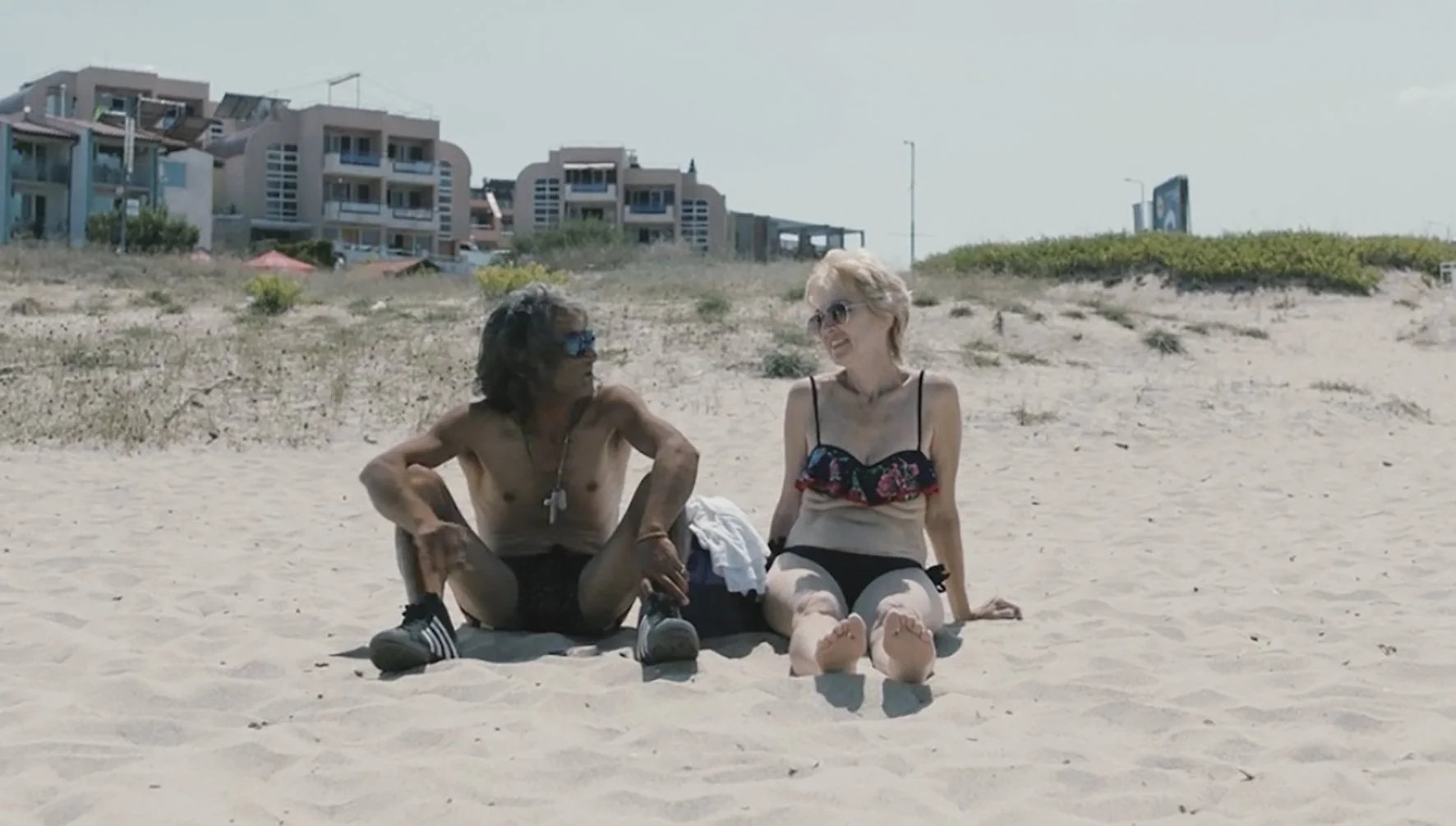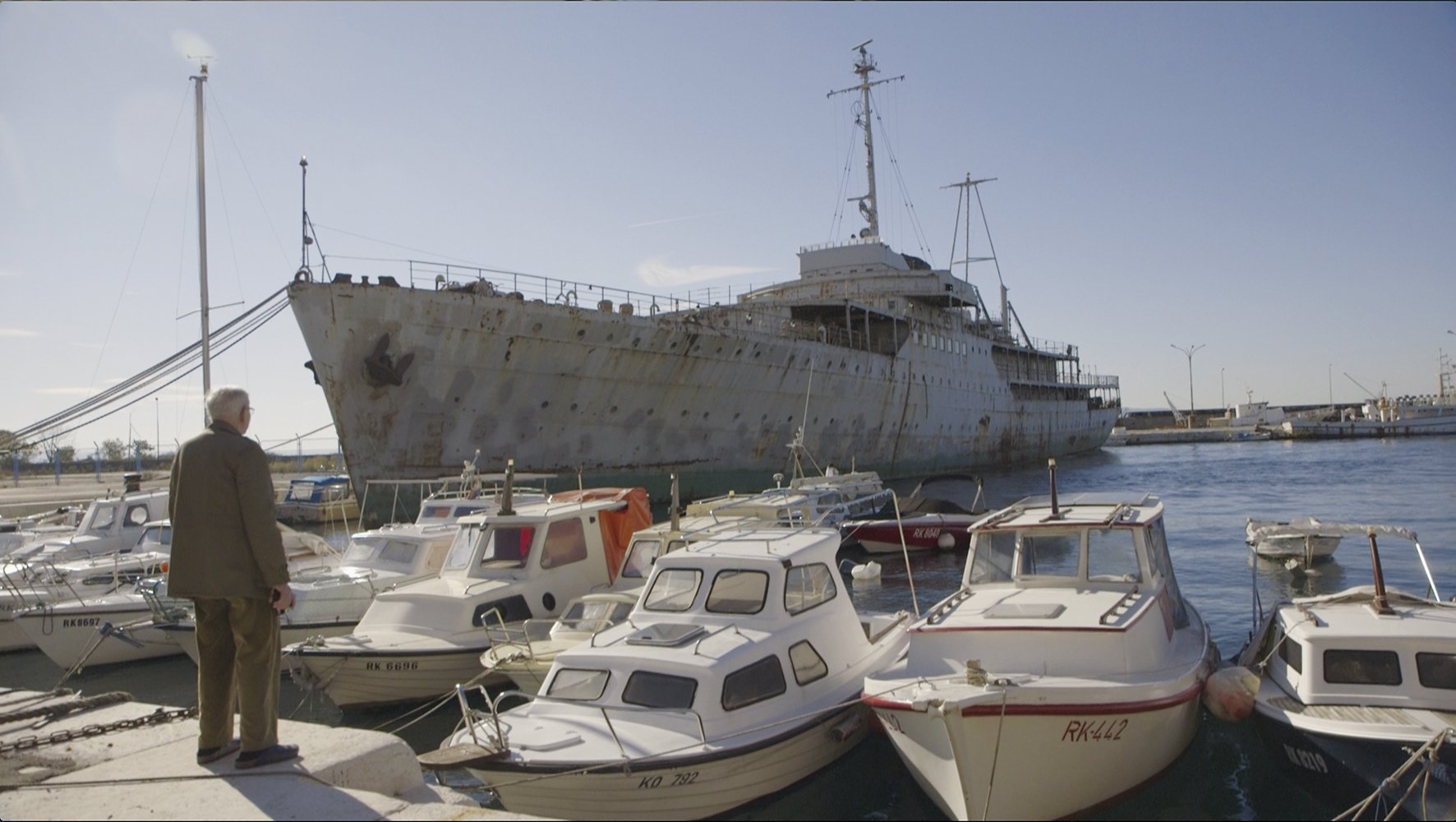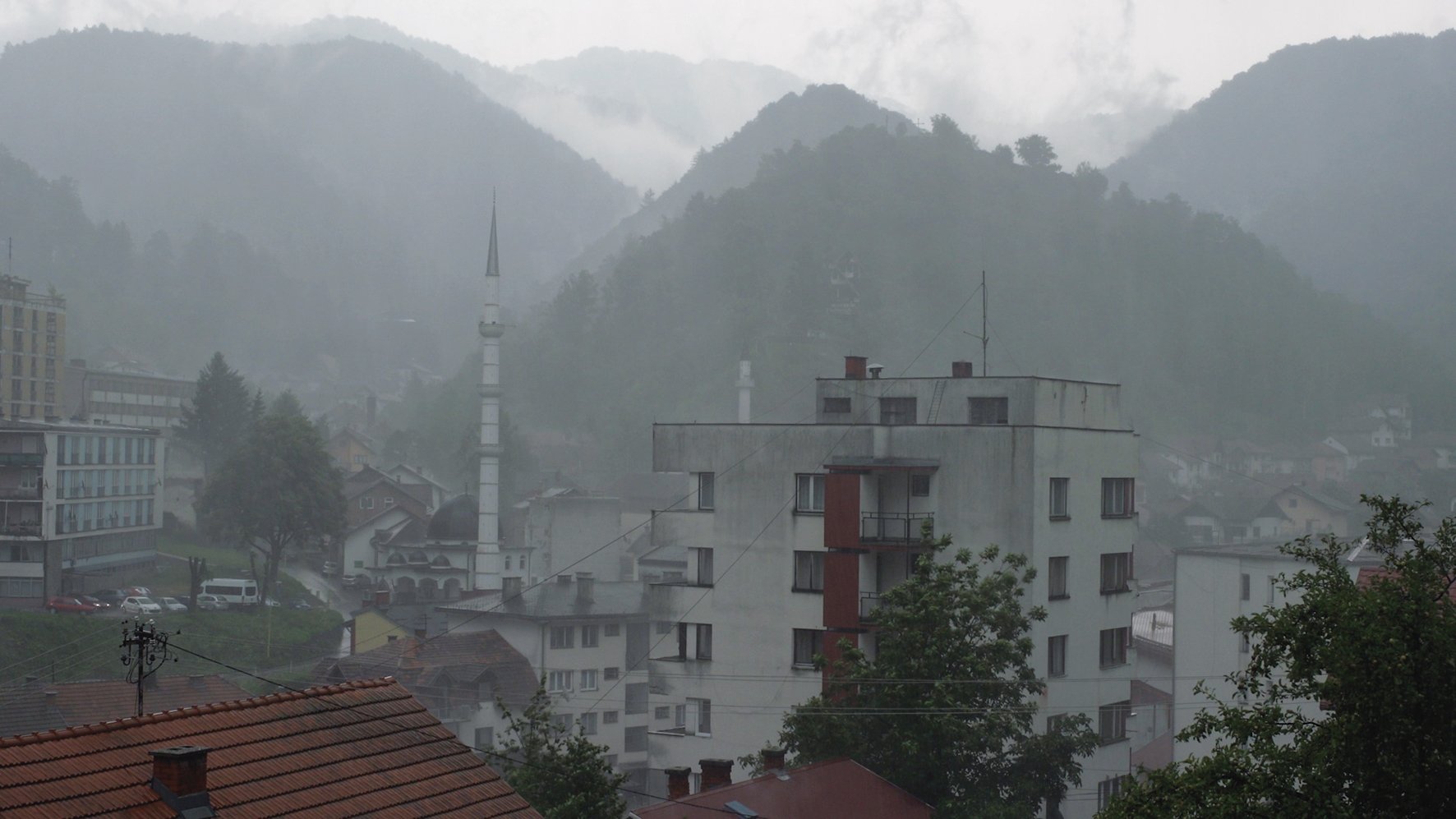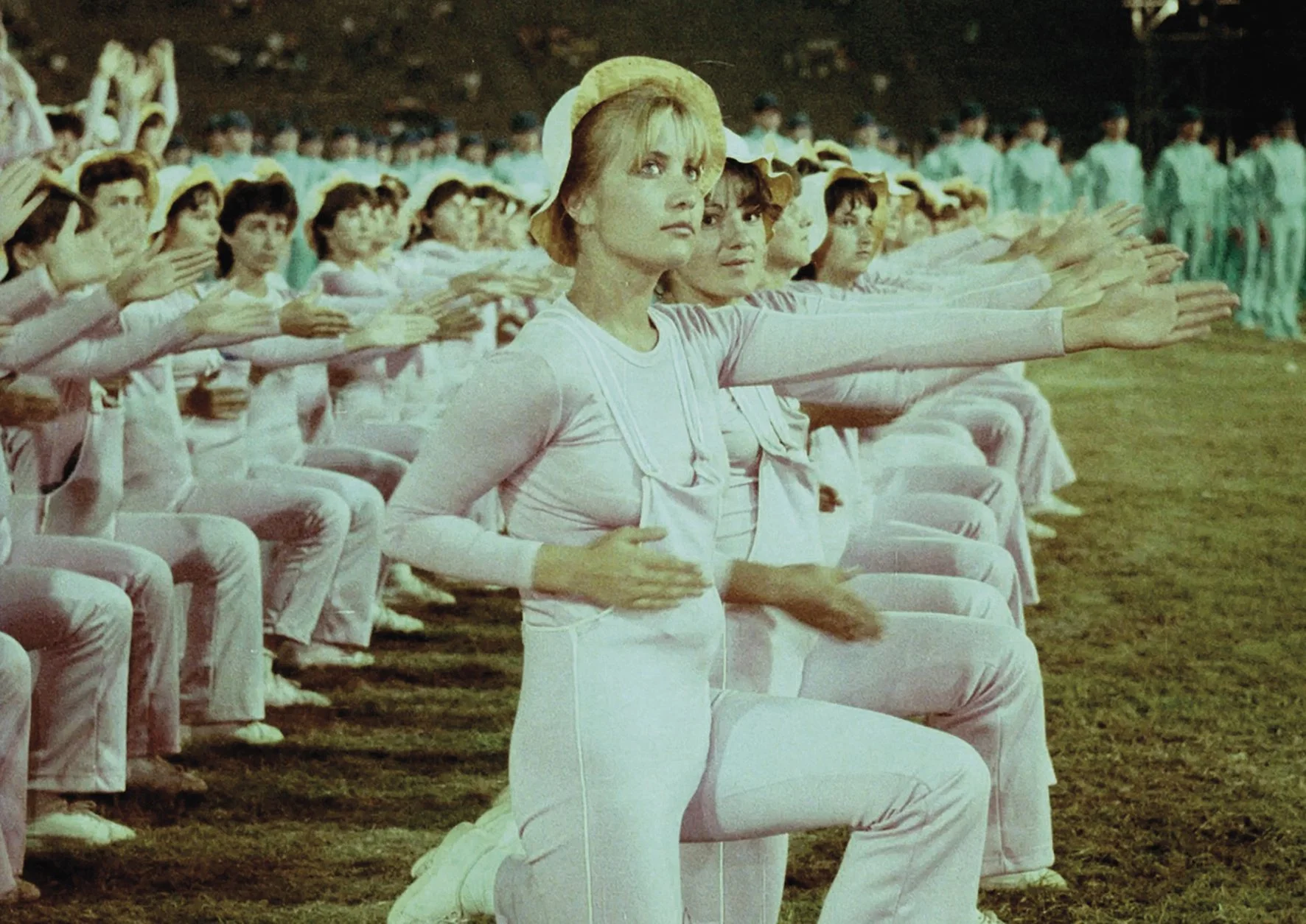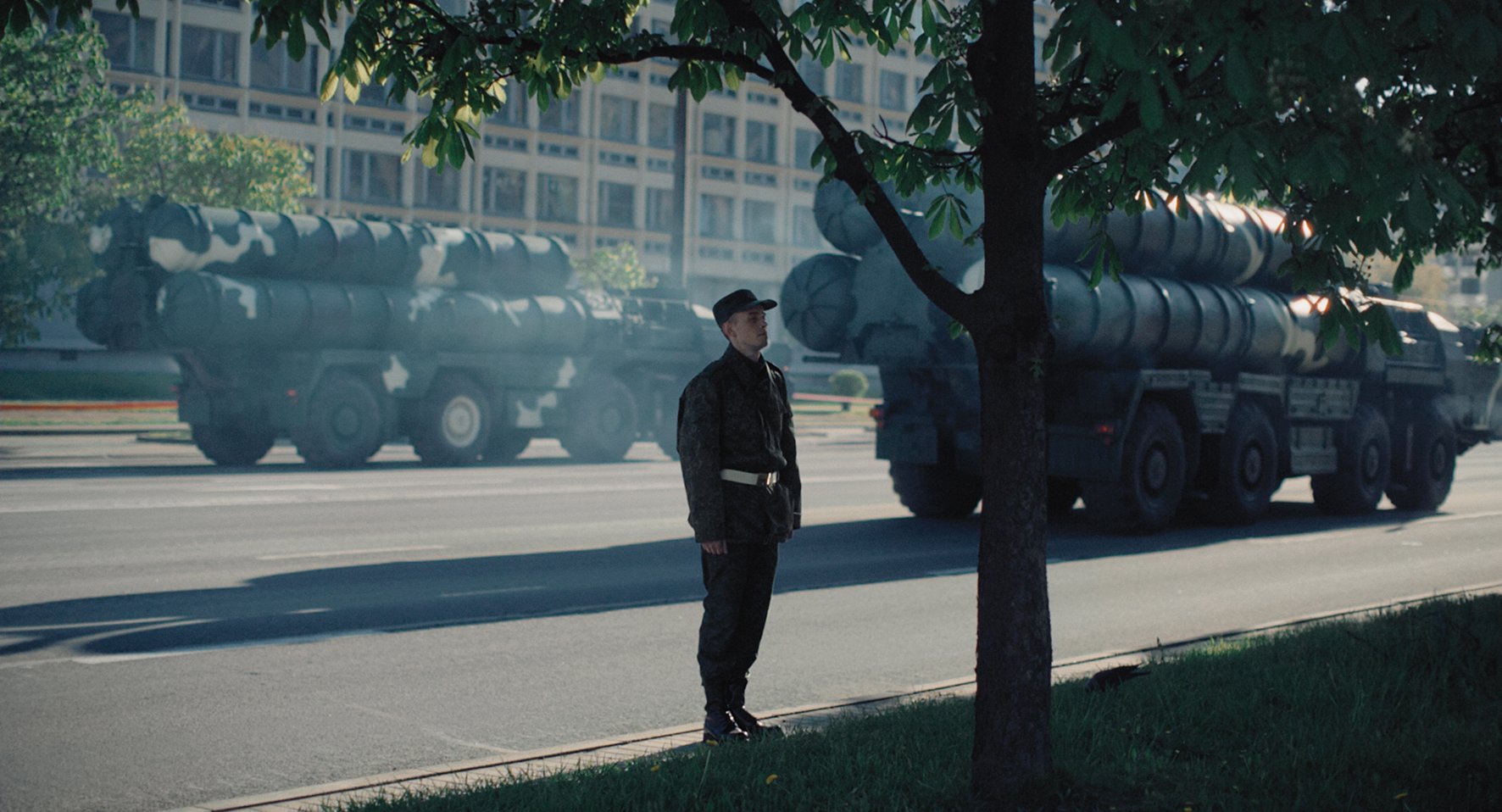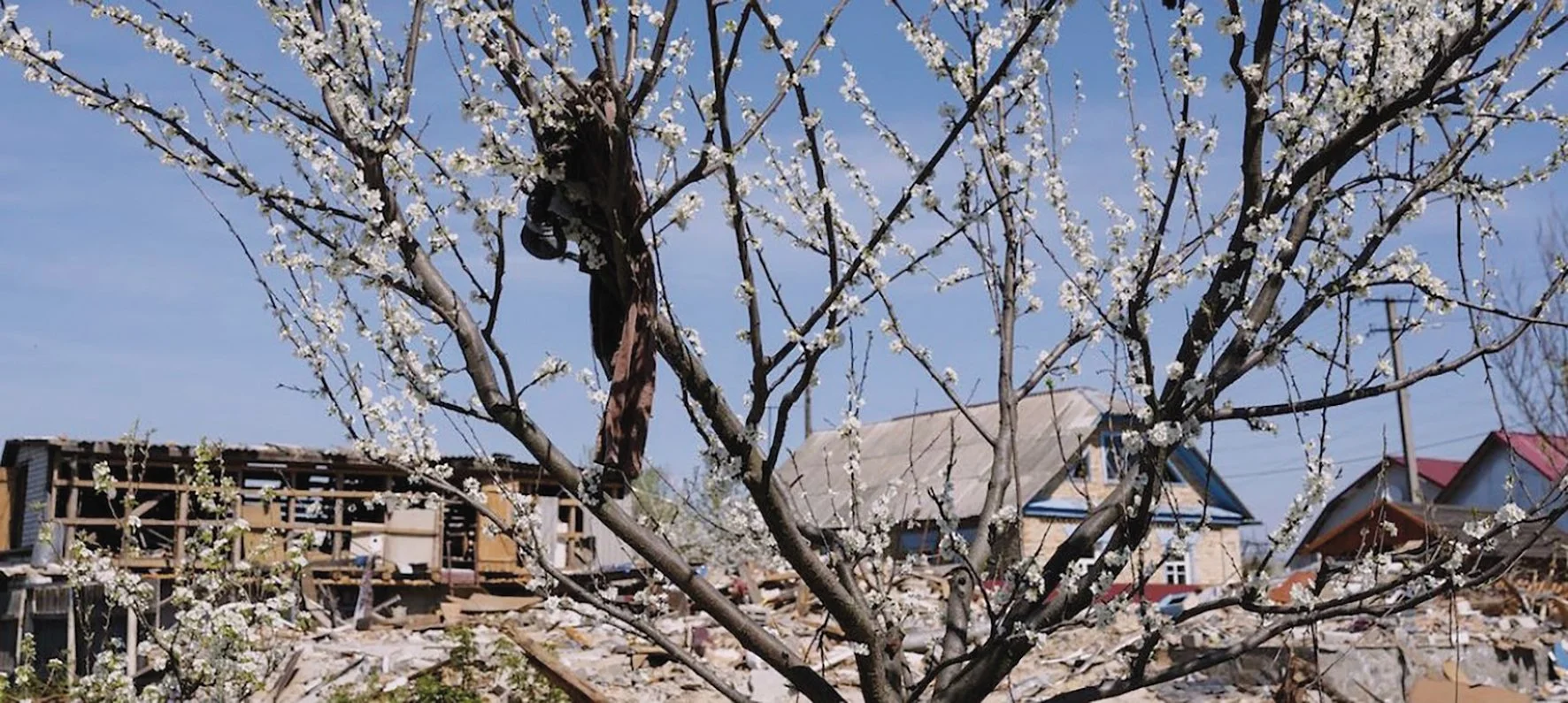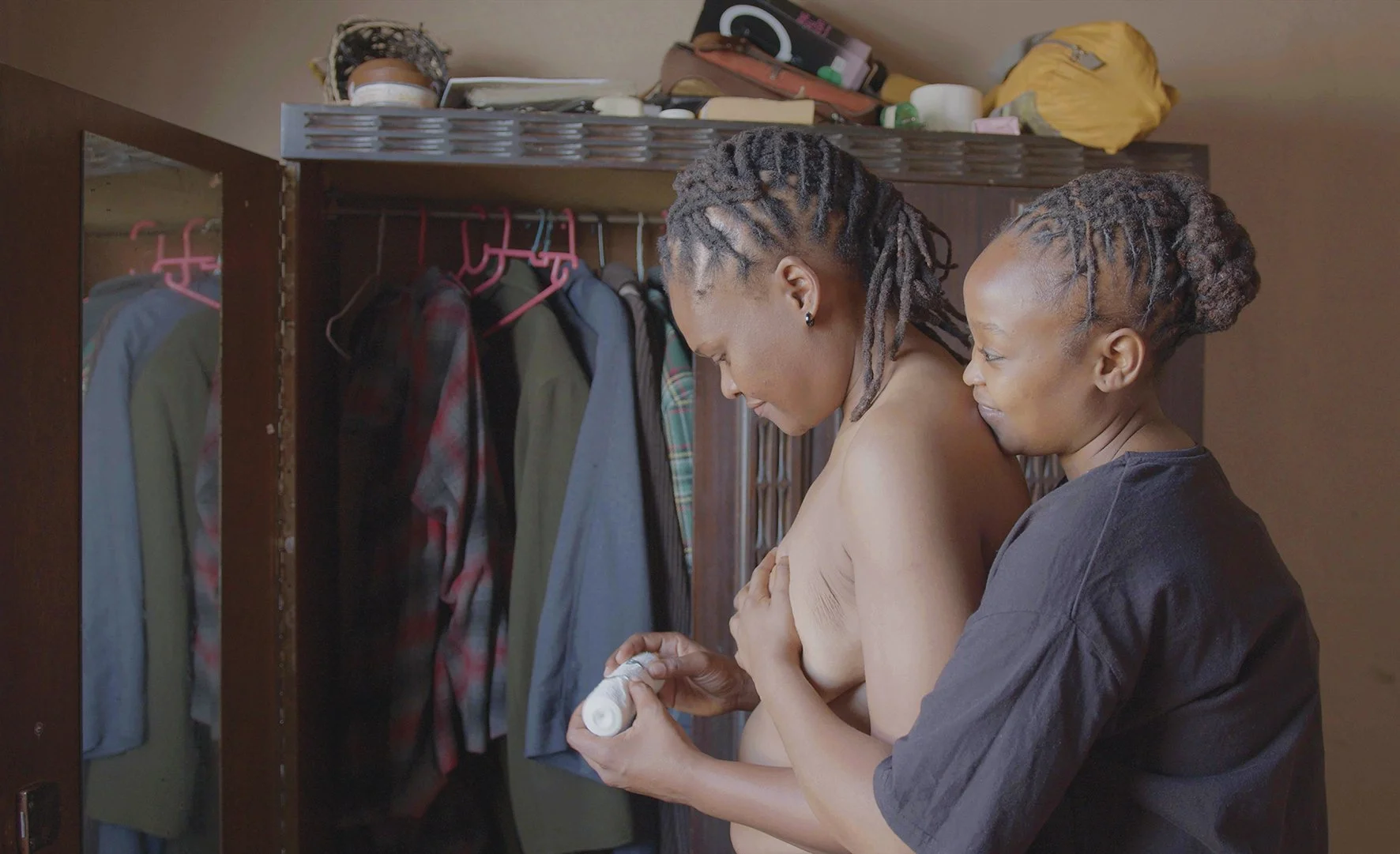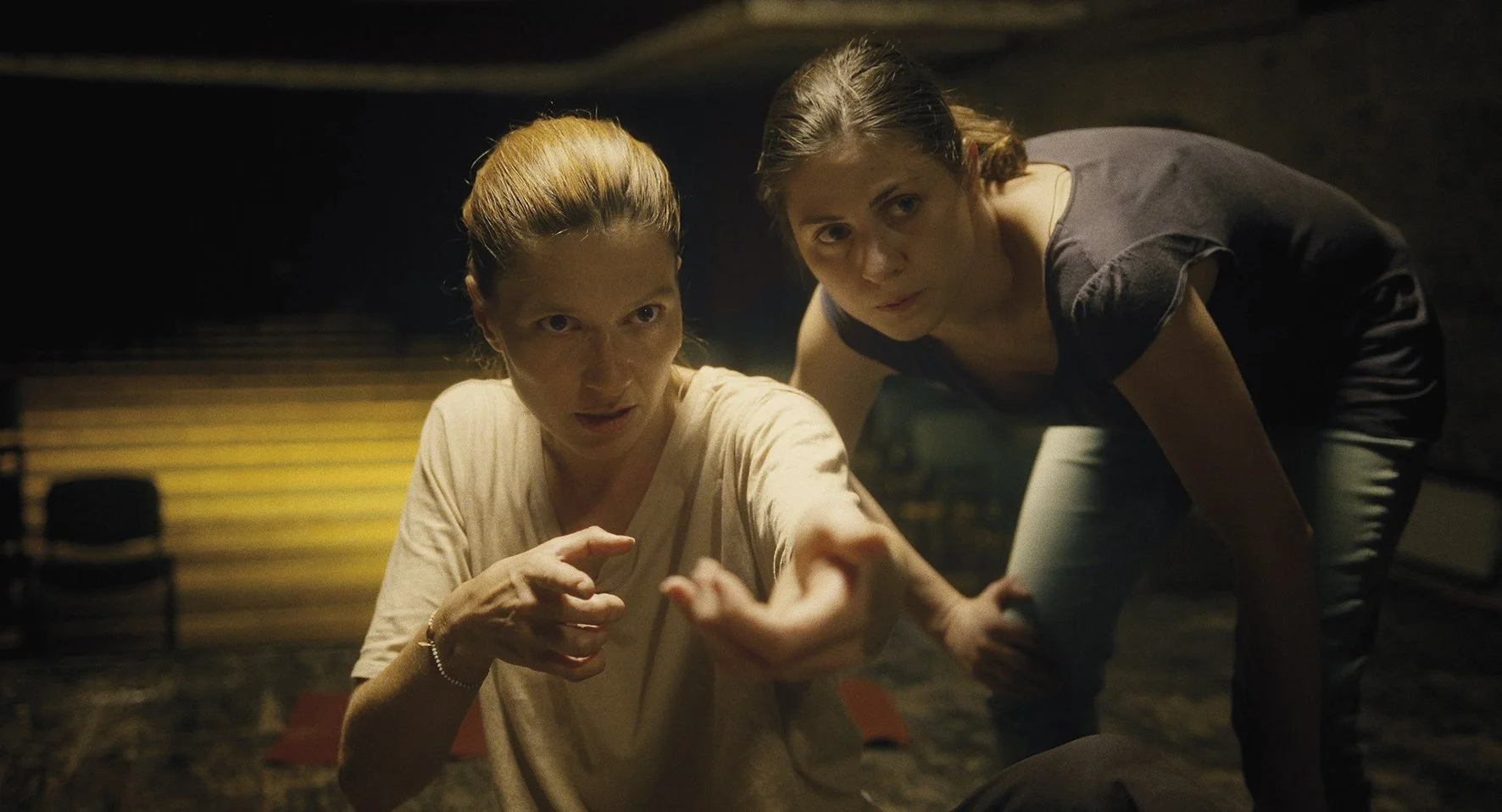Five New East Documentaries We Loved at CPH:DOX
While this year’s CPH:DOX, a festival we at New East Cinema love dearly, has come to a close, we have compiled a list of five films from its rich programme to look forward to. These are personal stories, some are portrait films, others–archival, but they all treat their subject matter with unflinching honesty. From the beaches of Bulgaria, to the conscription office in Minsk, Belarus, these five offerings paint a good overview of what to expect in New East documentary terms this year.
The Last Seagull (Tonislav Hristov / Finland/Bulgaria / 2023)
The film’s opening scene, borrowed from Hristo Kovachev’s 1977 Bulgarian film Seagulls, presents a few examples of what a ‘seagull’ is, in Bulgarian coastline slang. These are men who make their living as companions to well-off foreign single ladies holidaying on the Black Sea; they are charming, multi-lingual, and devoted to a woman’s pleasure. Acclaimed director Tonislav Hristov (The Good Postman, The Magic Life of V) presents us such one, Ivan, whose dream is to finally put this life behind him, settle down and have a family of his own. The Last Seagull is imbued with melancholy and a lot of well-paced humour that mirror the inner world of its otherwise guarded protagonist. Even more, the film is a loving portrait that refuses to glorify: Ivan’s life is not easy; he’s alienated by his son who lives in Ukraine; women are not as receptive to his charms as they once were; the pandemic shuts down tourism for months. But yet, Hristov and his camera persist, allowing their protagonist an outlet to share and maybe sublimate his troubles. Age, time, global catastrophes… Whoever said the seagull’s life was easy?
Non-Aligned: Scenes from the Labudović Reels (Mila Turajlic / France, Serbia, Montenegro, Qatar, Croatia / 2022 /)
Mila Turajlic is a Serbian filmmaker with a penchant to explore national through personal histories and after turning her camera on herself and her family in her IDFA-winning documentary The Other Side of Everything, she delved into the depths of Yugoslavian film archives. Non-Aligned is one part of her documentary diptych Scenes from the Labudović Reels based on unseen 35mm materials filmed by Stevan Labudović, the personal cameraman of Yugoslav President Tito, who was, amongst many other unfavourable things, a known cinephile. But the film centres around Labudović, now in his late 80s, who recounts the progression of his career, from the early days, through documenting the First Summit of the Non-Aligned Movement in early September 1961, to unseen before reels from the newly-independent countries in Africa filmed by him. Turalic investigates the role of Yugoslavia in the 1960s liberation movements through the cinematic image. Her project was also directly responsible for restoring footage from Algeria, Mali, Ethiopia, Tanzania and Mozambique, made for the countries’ own archives.
Disturbed Earth (Kumjana Novakova, Guillermo Carreras-Candi / Bosnia and Herzegovina, North Macedonia, Spain / 2022 /)
Following its premiere at Sarajevo Film Festival’s Documentary Competition, Kumjana Novakova and Guillermo Carreras-Candi’s Disturbed Earth made its way to Copenhagen. With a combination of digital and analogue means, the directors stitch together a tribute to the incommensurable losses of Srebrenica by talking to survivors and just sharing their presence. A meditative documentary whose portraits are sometimes interrupted, and other times complimented by Novakova’s poetic interjections, Disturbed Earth clocks in at just over one hour, leaving enough breathing room for its audience. To counter the suffocation one may feel in even the less revealing memoirs of Srebrenica, the elegiac sound design by Oriol Gallart Miret brings with it some temporary peace. Collective pain is unquantifiable, and individual pain– ineffable.
Between Revolutions (Vlad Petri / Romania, Croatia, Iran, Qatar / 2023 / 71 min)
Two young women, the Iranian Zahra, and the Romanian Maria meet at university in Bucharest in the 1970s. They become close friends; and perhaps something more. Soon, the change of political tide in Iran draws Zahra back home and the letters begin: exchanged over a decade, documenting the personal and social tumult, as woman and nation become metaphors for each other. Vlad Petri’s Between Revolutions, which won the FIPRESCI prize at Berlinale, consists of archival footage—photographs, newsreels, personal recordings—and letters read aloud with such sweet melancholy to convey the two women’s longing for one another put into words. In fact, Petri and writer Lavinia Braniște composed the text, fashioning their characters based on documents from the Romanian Secret Police. If Between Revolutions is archival fiction, does that take away any of its investigative power? By no means and in preparation for its immersive intimacy, we recommend checking out the short Petri made prior—The Same Dream—which relates Afghanistan to Romania with a similarly dual protagonist.
Motherland (Alexander Mihalkovich, Hanna Badziaka / Sweden, Ukraine, Norway / 2023)
This year’s Dox:Award winner tells its story in a twofold way. On the one hand, we have the youth of Belarus: the young men, their raves, nightclubs, friendship, and hangout spots, all darkened by the perspective of an inescapable military service. Cutting through this narrative line, there is Svetlana, a mother who has lost her son to the atrocities of said military service. Not in war, but in preparation for it. Motherland is as deeply upsetting as it is empathetic to both the mothers and the sons whose sacrifice is taken for granted even if they don’t make it to the Ukrainian frontier to fight a battle they do not align with. Alexander Mihalkovich and Hanna Badziaka film the farewells of future soldiers, their leaves, and even clandestine video calls, but the stories from the barracks themselves are told through frank and often poetic letters that fill the visual gap of the reign of Dedovshchina (the systematic abuse enacted on new recruits). Furthermore, Motherland was shot before, during, and after Alexander Lukashenko’s re-election and the subsequent protests, presenting a time-resistant snapshot of a nation that fights against its impasse, regardless of the cost.
The honourable mentions go to the two Ukrainian documentaries, When Spring Came to Bucha by Mila Teshaieva and Marcus Lenz, and 20 Days in Mariupol by Mstyslav Chernovhich present two different, but equally uncompromising facets of the war. Polish filmmakers Piotr Rosołowski and Elwira Niewiera spotlight an experimental theatre troupe whose young Ukrainian actors attempt to channel their trauma of war, rejection, and discrimination in The Hamlet Syndrome. In Who I Am Not, Romanian filmmaker Tünde Skovran presents two intersex people in South Africa who share their personal stories not only with the audience, but also with one another. Equally personal, Hanka Nobis’s Polish Prayers follows its young protagonist from the religious right-wing extreme to a new identity that is cathartic in all sorts of ways. All these films negotiate the relationship between past and present, by way of bodies, memories, places, in terms very much characteristic of the New East. Often, one’s own memory serves as an entry point to their documentary subjects and their personal memory palace, but this exchange entails negotiations, navigating both the collective memories and collective amnesia born out of traumatic historical events. A return to the archive is always a form of consolation with the present, and all these documentaries make that very relationship apparent. Yet, the new and versatile ways in which production histories, countries, and co-productions come into play, reshape the way these stories are being told, anew.

